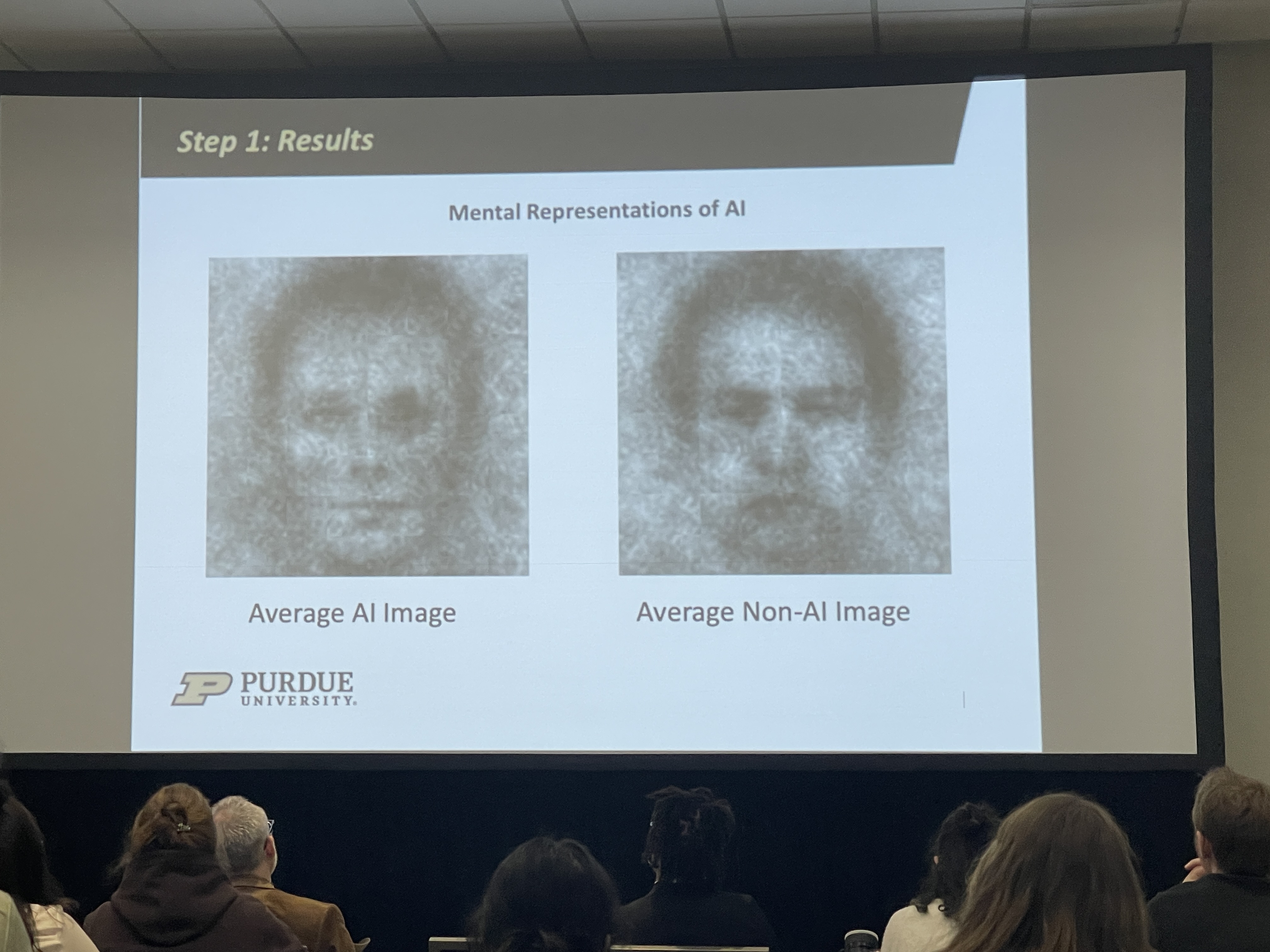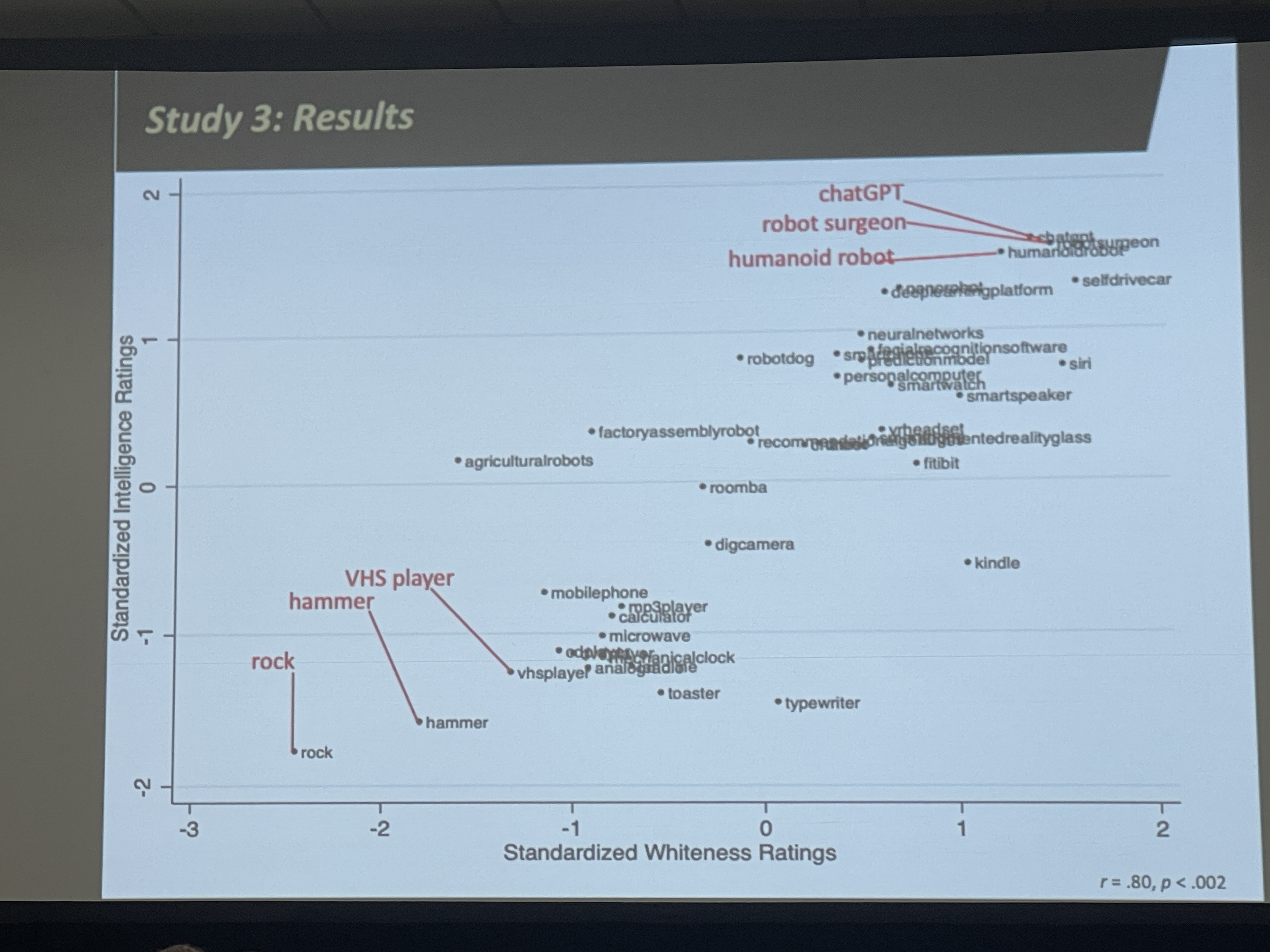Conference record: 20240209_SPSP@SanDiego
Conference Records 2024-02-09:
Conference Information
Conference Name: SPSP 2024
Location: San Diego Convention Center
Interesting sessions
Session name: AI's social and political footprints 1
Info
Topic: Artificial Intelligence Can Persuade Humans on Political Issues
Time: 15: 15
Speaker: Hui Bai
Details and Comments
- AI generated content → political persuasion → might distort democracy/misinformation
- 3 studies testing the political persuasion of AI generated content
- Study 1: pre-test policy support → reading a message → post-test policy support
- ChatGPT model 3
- Results: AI condition significant coefficient with logic regression
- Study 2: using more polarized issue
- Treatment (AI vs. AI X Human vs. Human) vs. Control
- Results: AI political persuasion could function with even polarized issues
- Summary
- Compared with human AI is more persuasive!
- Call for regulatory strategies
- Notice that participants did not know "who" is writing the articles
- Check this: https://www.researchsquare.com/article/rs-3238396/v1
Session name: AI's social and political footprints 2
Info
Topic: Hidden Attributes of Large Language Models
Time: 15: 30
Speaker: Nathanael Fast
Details and Comments
- LLMs are spreading → but how will interactions with LLMs change psychology
- Predictions:
- ppl's perceptions of different LLMs and humans will differ from each other
- LLMs will be rated as more socially attractive than humans
- Procedures:
- Prolific users generated 5 questions
- Human answered those questions and also let LLMs to generate answers
- Participants rate all the answers
- Results
- Annual income: human 70k >>> gpt 4
- SDO: gpt <<< human >>> fb
- voted for Trump: gpt <<< human >>> fb
- female: fb <<< human >>> gpt 3
- OCEA (Big five): fb <<< human >>>gpt
- N (Big five): gpt <<< human >>>fb
- social attractiveness: fb <<< human >>>gpt
- Ppl reported AI as more utility than harm
Session name: AI's social and political footprints 3
Info
Topic: The Racialization of Artificial Intelligence
Time: 15: 50
Speaker: Monica Gamez-Djokic
Details and Comments
- Bias in AI → often depicted as White + ppl often anthropomorphize machine/animals
- Study 1a-c: what race do you consider AI to be?
- 1a MTurk participants: 72% White
- 1b (no-option): 41% assign as "No Race"; 66% assign as White
- 1c (open-ended): 70% as White
- Study 2: what do AI looks like
- 2FCT (300 trials): which face looks more like AI?
- What race do you think this face is?
- AI image perceived as more White
- Study3: rate tools/techs/intelligence with race
- stereotypes associating intelligence Whiteness may play a role in driving bias
Session name: AI's social and political footprints 4
Info
Topic: Does ChatGPT Promote or Hinder Human Creativity?
Time: 16: 10
Speaker: Kostandin Kushlev
Details and Comments
- Researchers working with GPT generate more creative ides than researchers alone
- Can ChatGPT promote or hinder Creativity
- Methods
- Use database of college admissions essays
- Define collective creativity as aggregated
- Randomly selected Human Essays → 34 sentences → creativity → loop
- Assessing creativity DSI
- Study 1: GPT-4 vs. Human | Human > GPT-4
- Study 2: Creative GPT-4 (prompt vs. parameter) vs. Human
- Individual: Human > GPT = GPT prompt < GPT parameter
- Collective: Human ~ GPT parameter
- Study 3: diversified sample with human
- Individual: Human ~ diversified
- Collective: diversified > Human
- Results: when considering the dimension of creativity, GPT-4 model might not as creative as diverse human
- Already registered but not yet published: https://osf.io/ey84d?mode=&revisionId=&view_only=
Daily Summary
What's new
- Bai's studies are interesting and some of them involved fully deceptions, ppl were also interested with how participants rate the performance of AI generated articles/essays after knowing those "creators" were not human.
- The session I attended this day almost shared one common research flow, that comparing AI and human. Comparisons on personality inferences between AI and human, the impact on writing skills, the ability of creativity and so on...
- I visited some poster sections, and also I took the responsibility to present my own one. There were not such interesting posters at session D, thus I visited other Japanese fellows.
- Mr. Kashiwara's study involved the out-group attitudes and zero-sum ideology, after controlling the other possible variables that might influence attitudes towards the immigrant, participants hold stronger zero-sum tendency took more offensive behavior towards immigrant. It seems that they have developed a well functioned scale to measure the anti-immigrant behavior.
References
Bai et al., 2023, Artificial Intelligence Can Persuade Humans on Political Issues. https://www.researchsquare.com/article/rs-3238396/v1

